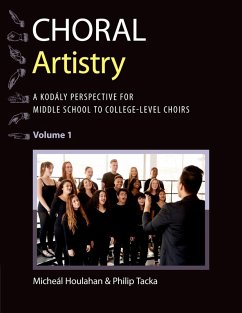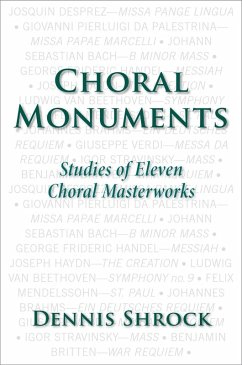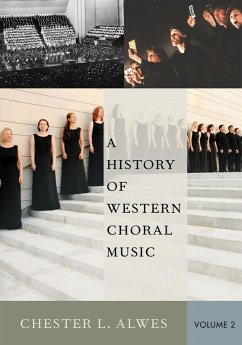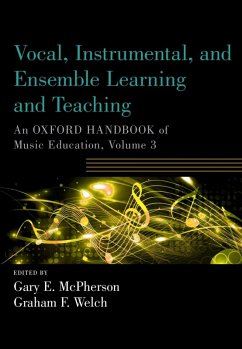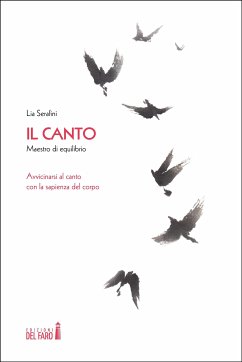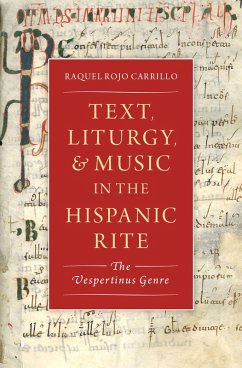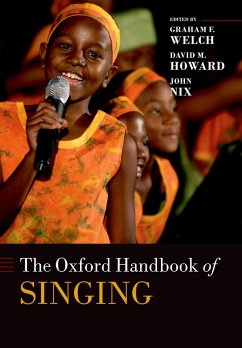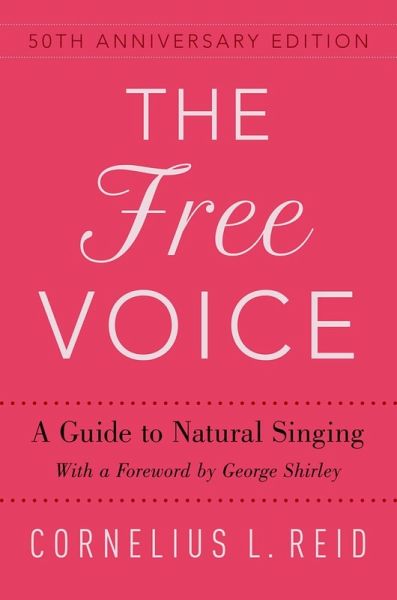
The Free Voice (eBook, ePUB)
A Guide to Natural Singing

PAYBACK Punkte
9 °P sammeln!
Great vocal teachers from the 16th century through the early 19th century discovered through trial and error how to properly develop the singing voice, and the term bel canto came to be applied to both the manner of singing and the vocal music of that period. But by 1858, according to Rossini, the term was already being misused and wrongly confused with fioriture. Well-schooled in the teaching of singing, Rossini more accurately describes bel canto as being composed of: the building of the instrument; technique, or the means of using the instrument; and style, of which the ingredients are tast...
Great vocal teachers from the 16th century through the early 19th century discovered through trial and error how to properly develop the singing voice, and the term bel canto came to be applied to both the manner of singing and the vocal music of that period. But by 1858, according to Rossini, the term was already being misused and wrongly confused with fioriture. Well-schooled in the teaching of singing, Rossini more accurately describes bel canto as being composed of: the building of the instrument; technique, or the means of using the instrument; and style, of which the ingredients are taste and feeling. In this 50th anniversary edition of The Free Voice, renowned vocal pedagogue Cornelius L. Reid articulates the teaching principles of his own school of functional vocal training, grounded firmly in the old principles while remaining in line with a modern understanding of the physical value of the vocal instrument. The muscles that move the vocal folds and the vocal folds themselves are involuntary, and as such, the singing voice is not an instrument that can be manipulated directly. Reid's approach to singing is one of indirect control, stemming from an understanding of the vocal registers and how specific patterns of pitch, intensity, and vowel affect the vocal folds. Through the vocal exercises outlined in this book, and catered to each individual, a poorly coordinated musculature can be brought to efficiency. Only when the musculature of the vocal mechanism is well-balanced and coordinated can the voice be free, and the natural beauty and resonance of the individual voice come through without force.
Dieser Download kann aus rechtlichen Gründen nur mit Rechnungsadresse in A, B, BG, CY, CZ, D, DK, EW, E, FIN, F, GR, HR, H, IRL, I, LT, L, LR, M, NL, PL, P, R, S, SLO, SK ausgeliefert werden.




